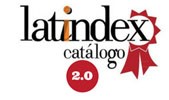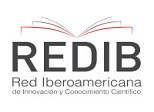The Role of Academic Authorities in Knowledge Exchange Management: An Exercise in Creativity
DOI:
https://doi.org/10.69890/hallazgos21.v5i3.481Keywords:
Academic authority; Higher Education Institutions; Creativity.Abstract
One of the most important functions performed in any higher education institution is the role of academic authority. This essay describes the situation that is developing at the level of academic authority in higher-level educational institutions in Latin America. The information was collected at executive meetings, conferences and workshops planned for that effect, from which emerges, as one of the most important aspects, the need to train academic authorities in the execution of their functions so that they make creative decisions that contribute to the achievement of educational excellence in all areas related to knowledge management and exchange.
References
Al-Kurdi, O., El-Haddadeh, R., & Eldabi, T. (2018). Knowledge sharing in higher education institutions: A systematic review. Journal of Enterprise Information Management, 31(2), 226–246.
Ahmed, Y. A., Ahmad, M. N., Ahmad, N., & Zakaria, N. H. (2018). Social media for knowledge-sharing: A systematic literature review. Telematics and Informatics. Elsevier Ltd https://doi.org/10.1016/j.tele.2018.01.015.
Amabile, T. (2000) Cómo matar la creatividad.EnHarvardBusiness Review. Creatividad e innovación.Compilador.Bilbao: EdicionesDeusto, S.A. p.p. 1 – 31.
Beadles, I. I., Aston, N., Lowery, C. M., & Johns, K. (2005). The impact of human resource information systems: An exploratory study in the public sector. Communications of the IIMA, 5(4), 6. Retrieved from http://scholarworks.lib.csusb.edu/cgi/viewcontent.cgi?article=1280&context=ciima.
Bock, G.-W., Zmud, R. W., Kim, Y.-G., & Lee, J.-N. (2005). Behavioral intention formation in knowledge sharing: Examining the roles of extrinsic motivators, social-psychological forces, and organizational climate. MIS Quarterly, 29(1), 87–111. Retrieved from http://163.26.133.1/classv2/UploadDocument/966_R15_MISQ_V29N1_
BehavioralIntention_Formation_in_Knowledge_Sharing.pdf.
Branin, J. J. (2003). Knowledge management in academic libraries: Building the knowledge bank at the Ohio State University. Journal of Library Administration, 39(4), 41–56. https://doi.org/10.1300/J111v39n04_05.
Charband, Y., & Jafari Navimipour, N. (2018). Knowledge sharing mechanisms in the education: A systematic review of the state of the art literature and recommendations for future research. Kybernetes, 47(7), 1456–1490.
Cheng, M. Y., Ho, J. S. Y., & Lau, P. M. (2009). Knowledge sharing in academic institutions: A study of Multimedia University Malaysia. Electronic Journal of Knowledge Management, 7(3), 313–324. Retrieved from https://pdfs.semanticscholar.org/fd95/3dc5d498eb872400a1521d9d0b3679fe6fda.pdf.
Cronin, B. (2001). Knowledge management, organizational culture and Anglo-American higher education. Journal of Information Science, 27(3), 129–137. https://doi.org/10.1177/016555150102700302 Retrieved from.
Drucker, P. (2000) La disciplina de la innovación. En Harvard Business Review. Creatividad e innovación. Compilador. Bilbao: Ediciones Deusto, S.A. p.p. 157 – 174
Fauzi, M. A., Tan, C. N. L., Thurasamy, R., & Ojo, A. O. (2019). Evaluating academics’knowledge sharing intentions in Malaysian public universities. Malaysian Journal of Library & Information Science, 24(1), 123–143.
Fullwood, R., & Rowley, J. (2017). An investigation of factors affecting knowledge sharing amongst UK academics. Journal of Knowledge Management, 21(5), 1254–1271.
Fullwood, R., Rowley, J., & Delbridge, R. (2013). Knowledge sharing amongst academics in UK universities. Journal of Knowledge Management, 17(1), 123–136. https://doi.org/10.1108/13673271311300831.
Goh, S., & Sandhu, M. (2013). Knowledge sharing among Malaysian academics: Influence of affective commitment and trust. The Electronic Journal of Knowledge Management, 11(1), 38–48. Retrieved from https://www.researchgate.net/profile/See_Kwong_Goh/publication/282022238_Knowledge_Sharing_Among_Malaysian_Academics_Influence_of_Affective_Commitment_and_Trust/links/56018dd108aecb0ce88163ec.pdf.
Goh, S.-K., & Sandhu, M.-S. (2014). The influence of trust on knowledge donating and collecting: An examination of Malaysian universities. International Education Studies, 7(2), https://doi.org/10.5539/ies.v7n2p125.
Hislop, D. (2013). Knowledge management in organizations (3rd ed.). Oxford: Oxford University Press.
Jiacheng, W., Lu, L., & Francesco, C. (2010). A cognitive model of intra-organizational knowledge-sharing motivations in the view of cross-culture. International Journal of Information Management, 30(3), 220–230. https://doi.org/10.1016/j.ijinfomgt.2009.08.007.
Kukko, M. (2013). Knowledge sharing barriers in organic growth: A case study from a software company. The Journal of High Technology Management Research, 24(1), 18–29. https://doi.org/10.1016/j.hitech.2013.02.006.
Lopez-Nicolas, C., & Soto-Acost, P. (2010). Analyzing ICT adoption and use effects on knowledge creation: An empirical investigation in SMEs. International Journal of Information Management, 30(6), 521–528.
Martínez, R. (2011) ¿Directivos vs Políticos? La importancia de la función directiva en las administraciones públicas. Revista Encrucijada. Séptimo número, México.
McManus, D., & Loughridge, B. (2002). Corporate information, institutional culture and knowledge management: A UK university library perspective. New Library World, 103(9), 320–327. https://doi.org/10.1108/03074800210445453.
Nonaka, I., & Takeuchi, H. (1995). The knowledge creating company. Oxford: Oxford University Press.
Qureshi, A. M. A., & Evans, N. (2015). Deterrents to knowledge-sharing in the pharmaceutical industry: A case study. Journal of Knowledge Management, 19(2), 296–314. https://doi.org/10.1108/JKM-09-2014-0391.
Ramachandran, S. D. (2013). Knowledge management practices and enablers in public universities: A gap analysis. Campus-Wide Information Systems, 30(2), 76–94.
Rowley, J. (2000). Is higher education ready for knowledge management? International Journal of Educational Management, 14(7), 325–333. Retrieved from http://www.unitec.edu.ve/materiasenlinea/upload/T763-6-3.pdf.
Sunalai, S., & Beyerlein, M. (2015). Exploring knowledge management in higher education institutions: Processes, influences, and outcomes. Academy of Educational
Leadership Journal, 19(3), 289. Retrieved from http://search.proquest.com/
Published
How to Cite
Issue
Section
License
Los artículos enviados a la Revista Científica Hallazgos21 deberán ser totalmente originales e inéditos.
Los autores son los responsables de los textos y las imágenes incluidas en los artículos y no necesariamente reflejan el pensamiento de la editorial o de la Pontificia Universidad Católica del Ecuador, Sede Esmeraldas (PUCESE).
Los autores disponen cederle a la Revista Científica Hallazgos21 todos los derechos inherentes para la edición, publicación y distribución o divulgación del mismo.
Se autoriza a las revistas firmantes de los acuerdos de Encuentros de Revistas Latinoamericanas para reproducir en parte o totalmente los artículos con la sola mención de la fuente claramente señalada.







